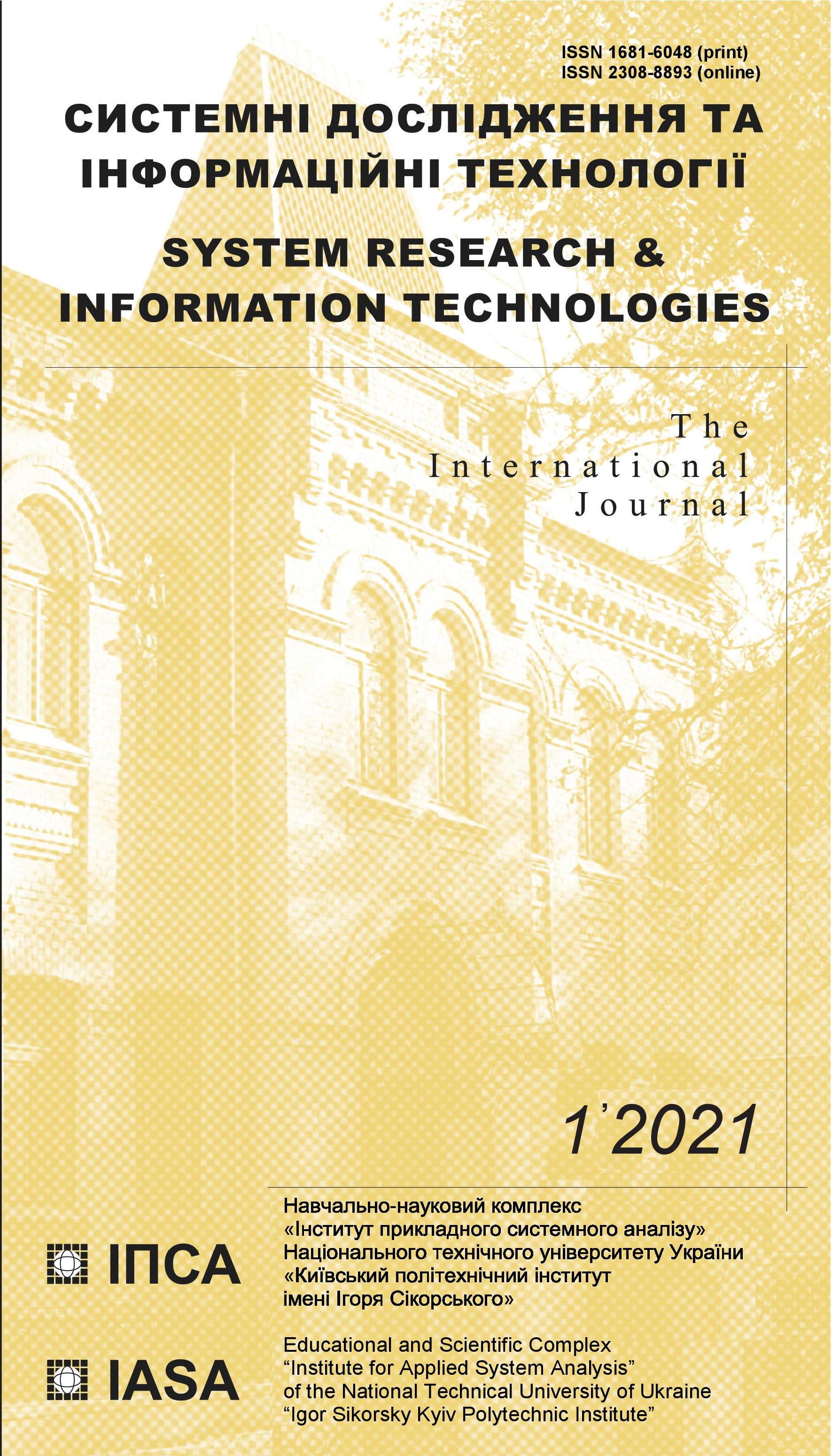General methods of forecasting nonlinear nonstationary processes based on mathematical models using statistical data
DOI:
https://doi.org/10.20535/SRIT.2308-8893.2021.1.06Keywords:
mathematical modeling, signal processing, nonstationary processes, autoregressive models, neural networks, recurrent neural networksAbstract
The article considers the problem of forecasting nonlinear nonstationary processes, presented in the form of time series, which can describe the dynamics of processes in both technical and economic systems. The general technique of analysis of such data and construction of corresponding mathematical models based on autoregressive models and recurrent neural networks is described in detail. The technique is applied on practical examples while performing the comparative analysis of models of forecasting of quantity of channels of service of cellular subscribers for a given station and revealing advantages and disadvantages of each method. The need to improve the existing methodology and develop a new approach is formulated.
References
O.M. Belas, P.I. Bidyuk, and A.O. Belas, “Comparative analysis of autoregressive approaches and recurrent neural networks for modeling and forecasting of nonlinear nonstationary processes”, Information Technology and Security, vol. 7, no. 1, pp. 91–99, 2019.
J. Box and G. Jenkins, Time Series Analysis. Moscow, USSR: Mir, 1974.
A. Azevedo and M. Santos, “KDD, SEMMA and CRISP-DM: a parallel overview”, in Proc. of the IADIS European Conference on Data Mining, pp. 182–185, 2008.
SEMMA in SAS Enterprise Miner [Online]. Available: https://web.archive.org/ web/20120308165638/http://www.sas.com/offices/europe/uk/technologies/analytics/datamining/miner/semma.html/. Accessed on: Sep. 12, 2020.
R. Shumway and D. Stoffer, Time Series Analysis and Its Applications. New York, USA: Springer, 2011. doi: 10.1007/978-1-4757-3261-0.
R. Hyndman and Y. Khandakar, “Automatic time series forecasting: the forecast package for R”, Journal of Statistical Software, vol. 27, no. 3, 2008.
S. Hochreiter and J. Schmidhuber, “Long Short-Term Memory”, Neural Computation, vol. 9, no. 8, pp. 1735–1780, 1997.
F.A. Gers, D. Eck, and J. Schmidhuber, “Applying LSTM to Time Series Predictable Through Time-Window Approaches”, in Proc. of International Conference on Artificial Neural Networks, pp. 669–676, 2001.
S. Hochreiter, Y. Bengio, and J. Schmidhuber, Gradient flow in recurrent nets: the difficulty of learning long-term dependencies [Online]. Available: http://www.bioinf.jku.at/publications/ older/ch7.pdf . Accessed on: Dec. 12, 2018.
P.I. Bidyuk, V.D. Romanenko, and O.L. Timoschuk, Analysis of time series. Kyiv, Ukraine: Polytechnic, 2010.
R. Hyndman and G. Athanasopoulos, Forecasting: Principles and Practice. Melbourne, Australia: OTexts, 2013.
F. Chollet, Deep Learning with R. New York, USA: Manning, 2017.

